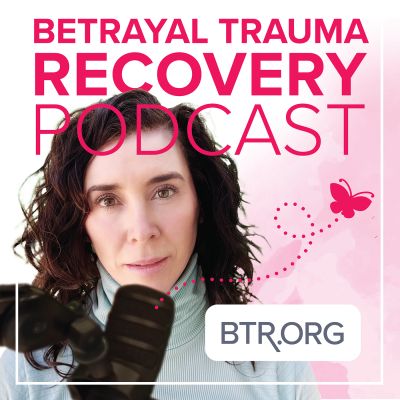btr.org - btr.org has daily, online Group and Individual Sessions for victims of emotional & psychological abuse and sexual coercion. For women experiencing pain, chaos, and isolation due to their husband’s lying, gaslighting, manipulation, porn use, cheating, infidelity, emotional abuse, and narcissistic abuse. Labeling a victim as "codependent" is a form of victim blaming. Pornography addiction / sex addiction are a domestic abuse issue. Narcissistic abuse is not a communication issue. We help women who are married, separated, or divorced heal through establishing emotional safety. If you suspect your husband is a narcissist, a pornography addict, or emotionally abusive, this podcast is for you. Every woman on our team has experienced betrayal trauma first hand. To learn more about Betrayal Trauma Recovery, visit BTR.ORG
https://www.btr.org/podcast/
episode 34: When They Say Forgive Your Abuser
Countless victims of betrayal and emotional abuse have been counseled by clergy, therapists, family, and friends to forgive their abuser.
While the intention may be good, forgiveness is a choice that women can make, but victims should never be shamed or forced into offering forgiveness to their abusers.
On the BTR podcast, Anne shares her own perspective on how forgiveness can help women set boundaries. Listen to the free BTR podcast and read the full transcript below.
Why Do I Feel Guilty For Not Forgiving Him?
Victims of betrayal and abuse are conditioned by both society and their abusers to immediately offer forgiveness to the abuser, regardless of their own trauma and need for safety.
Many times, when women do not trust their spouse or partner who has betrayed and abused them, they may feel a degree of guilt or shame for not offering forgiveness.
This may come from their religious background, family of origin, or simply their own value of forgiving others. However, women can trust themselves that if they cannot or will not forgive, they can give themselves time to heal instead of forcing it.
https://www.youtube.com/watch?v=TNAcnUB_ShE&t=1s
Forgiveness And Trust Are Not The Same Thing
When an abuser betrays and harms his the victim, it is wise and safe for her to withhold trust. Trust is earned.
Forgiveness is different than trust: women have the right to choose when they forgive and how they forgive their abuser. While some victims say that forgiving their abuser cleared the way for healing, there are many others who have not offered forgiveness and are also on a healthy path to healing.
Forgiveness Is A Personal Decision
You get to choose when and if you forgive your abuser. No one else can or should direct or counsel you to offer forgiveness when you are not ready, or have chosen not to forgive.
Women can still live peaceful lives, even if they choose not to offer forgiveness to their abuser.
How Can I Respond When Someone Urges Me to Forgive Him?
Here are some ideas of responses when others tell you to forgive your abuser:
* I will forgive on my own timeline.
* My decision to forgive or not forgive is personal.
* Please help me process my own trauma: urging me to forgive is not helpful to my recovery.
* I am in trauma: please do not talk to me about forgiveness right now.
* You can ask me how I am doing, but please don't tell me how to navigate this painful journey.
Betrayal Trauma Recovery Supports Victims of Betrayal and Emotional Abuse
At BTR, we understand the emotional pain and confusion that accompanies the concept of forgiveness. Women deserve support and empowerment as they navigate the bumpy road of healing and peace.
The Betrayal Trauma Recovery Group meets daily in every time zone and offers women the support and community that they need and deserve.
